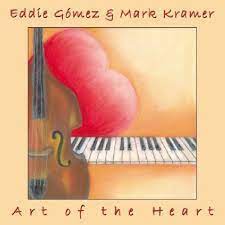
Daily Dose OF Jazz…
Mark Kramer was born November 3, 1945 in Philadelphia, Pennsylvania. His prelimonary tutelage came from members of the Philadelphia Orchestra who mentored him on violin from the age of five. His early jazz performances in his teens and twenties included Michael and Randy Brecker, Charles Fambrough, Stanley Clarke, and Eric Gravatt.
Over the next decades his trio went on to record a series of specialty productions including the largest known body of jazz renditions of complete Broadway shows, jazz versions of principal themes from the John Williams score of Harry Potter and the Sorcerer’s Stone, and a compilation of jazz renditions of the music of The Rolling Stones.
Kramer has mainly been an arranger and leader of his own trios throughout his career. His numerous recordings/productions are often listed under The Mark Kramer Trio. Many works from the late Eighties with bassist Eddie Gómez are listed under Eddie Gómez and Mark Kramer or simply Eddie Gómez.
A far-ranging catalog of duo and trio recordings included the Art of the Heart on Art of Life Records. Pianist, composer, arranger, and producer/engineer Mark Kramer continues to pursue his creativity in music.
More Posts: arranger,bandleader,composer,engineer,history,instrumental,jazz,music,piano,producer
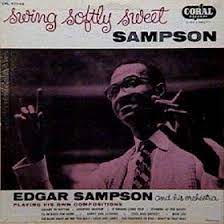
Daily Dose Of Jazz…
Edgar Melvin Sampson was born on October 31, 1907 in New York City, New York. He began playing violin aged six and picked up the saxophone in high school, then started his professional career in 1924 in a violin piano duo with Joe Colman. Through the rest of the 1920s and early 1930s, he played with many big bands, including those of Charlie “Fess” Johnson, Duke Ellington, Rex Stewart and Fletcher Henderson.
In 1934, Sampson joined the Chick Webb outfit and during his period he created his most enduring work as a composer, writing Stompin’ at the Savoy and Don’t Be That Way. Leaving Webb in 1936, his reputation as a composer and arranger led to freelance work with Benny Goodman, Artie Shaw, Red Norvo, Teddy Hill, Teddy Wilson and Webb.
Becoming a student of the Schillinger System in the early 1940s, Edgar continued to play saxophone through the late 1940s and started his own band at the end of the decade. He worked with Latin performers such as Marcelino Guerra, Tito Rodríguez and Tito Puente as an arranger.
He recorded one album under his own name, Swing Softly Sweet Sampson, in 1956. Due to illness, he stopped working in the late Sixties. Composer, arranger, saxophonist, and violinist Edgar Sampson, nicknamed The Lamb, transitioned on January 16, 1973.
More Posts: arranger,bandleader,composer,history,instrumental,jazz,music,saxophone,violin
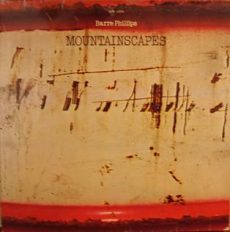
Daily Dose Of Jazz…
Barre Phillips was born October 27, 1934, in San Francisco, California. He studied briefly in 1959 with S. Charles Siani, Assistant Principal Bassist with the San Francisco Symphony. In 1962 he moved to New York City in 1962 and during the Sixties he recorded with, among others, Eric Dolphy, Jimmy Giuffre, Archie Shepp, Peter Nero, Attila Zoller, Lee Konitz and Marion Brown.
Moving to Europe in 1967, Phillips’ 1968 recording of solo bass improvisations was issued under three different titles as Journal Violone in the US, Unaccompanied Barre in England, and Basse Barre in France on Futura Records, is generally credited as the first solo bass record.
A 1971 record with Dave Holland, Music from Two Basses, was probably the first record of improvised double bass duets. Since 1972 he has been based in southern France and in the 1970s, he was a member of the well-regarded and influential group The Trio, with saxophonist John Surman and drummer Stu Martin.
The 1980s and 1990s saw Barre playing regularly with the London Jazz Composers Orchestra, led by fellow bassist Barry Guy. He worked on soundtracks of the motion pictures Merry-Go-Round, Naked Lunch together with Ornette Coleman, and Alles was baumelt, bringt Glück!. He has also worked with numerous bassists, guitarists, clarinetists, saxophonists, and pianists.
At 87, double bassist Barre Phillips continues to be active on the jazz scene.
More Posts: bass,history,instrumental,jazz,music
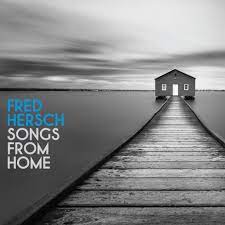
Daily Dose Of Jazz…
Fred Hersch was born October 21, 1955 in Cincinnati, Ohio to Jewish parents and began playing the piano at the age of four, composing music by eight. By ten he won national piano competitions.
Hersch first became interested in jazz while at Grinnell College in Iowa. He dropped out of school and started playing jazz in Cincinnati, continuing his studies at the New England Conservatory under Jaki Byard and attracting attention from the press in a college recital. Upon graduation, he became a jazz piano instructor at the college.
1977 saw Fred moving to New York City, then gigged with Art Farmer in Los Angeles, California in 1978. He would play with Farmer again three years later, played for singer Chris Connor, then with Joe Henderson. He would go on to perform with Jane Ira Bloom, Jamie Baum, Toots Thielemans, Eddie Daniels, and Janis Siegel. A fortuitous firing of his pianist by Art Pepper gave Hersch the launch of his career when he filled in for the pianist.
In 1986, he taught at Berklee College of Music, performed and recorded sixty-four albums as a leader or co-leader, seventy-nine as a sideman and wrote an autobiography, Good Things Happen Slowly: A Life In and Out of Jazz.
In 1993, Hersch came out as gay and has been treated for HIV since 1984. He fell into a coma in 2008 for two months but when he regained consciousness, he had lost all muscular function as a result of his long inactivity and could not play the piano. After rehabilitation, he was able to play again. He continues to compose, perform and record.
More Posts: bandleader,composer,educator,history,instrumental,jazz,music,piano
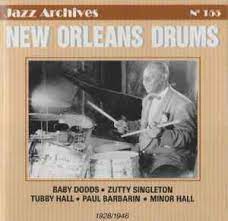
Daily Dose Of Jazz…
Alfred “Tubby” Hall was born October 12, 1895 in Sellers, Louisiana and his family moved to New Orleans, Louisiana in his childhood. His younger brother Minor “Ram” Hall also became a professional drummer. He played in many marching bands in New Orleans, including with Buddie Petit. His drumming style was forceful and sober, generally maintaining constant tempo on the snare.
By 1917 Hall had moved to Chicago, Illinois where he played with Sugar Johnny Smith. After two years in the United States Army, he returned to playing in Chicago mostly with New Orleans bands, joining Carroll Dickerson’s Orchestra and recording in 1927. He later played with the groups of King Oliver, Jimmie Noone, Tiny Parham, and Johnny Dodds.
He is seen in Armstrong’s Paramount movies of the early 1930s, including the live action and Betty Boop cartoon I’ll Be Glad When You’re Dead, You Rascal You and A Rhapsody in Black and Blue in 1932. Only Armstrong and Hall got closeups in the two films, and both get their faces transposed with those of racially stereotyped jungle natives in the cartoon. Hall morphs from a jazz drummer to a cannibal stirring a cooking pot with two wooden sticks.
Drummer Tubby Hall, considered one of the three greatest jazz drummers of his generation by jazz critic Hugues Panassié, along with Zutty Singleton and Baby Dodds, transitioned in Chicago, Illinois on May 13, 1945.
More Posts: drums,history,instrumental,jazz,music



